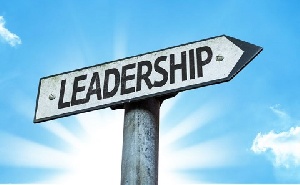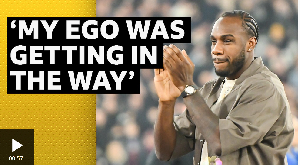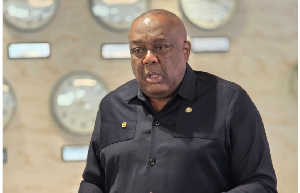“What is Osmosis?” My science teacher asked. “Osmosis is the movement of molecules through a semipermeable membrane into a region of higher solute concentrates.” I remember raising my hand and answering this question to a rapturous round of applause from classmates. It was a good feeling. I felt smart.
My classmates considered me smart. However, the truth of the matter is that, I didn’t have a clue as to what Osmosis was back then, and I wouldn’t be explain it to you if you asked me to at this very moment.
Sadly, this is a common trend in most of our educational institutions. Our children are taught to memorize long definitions and concepts without a firm fundamental understanding of the inner workings of these concepts.
The goal is to help students pass exams. We have made passing exams take the center stage of our educational process as opposed to really educating our youth. We have deviated from the core principles of education which is to nurture and equip young people with the requisite knowledge and skills needed to take over the mantle of leadership in the Ghanaian society creating a crisis in our leadership which ultimately is impeding the growth and development of this great nation.
The leadership crisis we are experiencing in this country can be traced to certain deficiencies in our educational system.
Our curriculum is more or less theoretically oriented leaving little room for creativity and imagination. The opinions and viewpoints of students are rarely considered. What happens in most of our classrooms is that, students are taught to memorize notes and handouts prepared by lecturers and teachers. Basically a student’s intelligence is measured by his or her ability to memorize and produce information passed down from a teacher or lecturer in a test.
In as much as the ability to memorize is a form of intelligence on its own, I believe it shouldn’t take the center stage ahead of critical thinking. As a matter of fact, our leadership crisis is largely caused by our inability to impart our children with the critical thinking skills needed to survive and thrive in the 21st century.
There are some key major questions we need to ask ourselves in our quest to help our future leaders understand the dynamics and complexities of the problems we face and one of them is to critically assess whether our educational curriculum aligns with our socio-cultural environment as Ghanaians.
Are we training our kids in the best way possible so as to confront our socio-economic problems and find lasting solutions to them? Are we equipping them with the knowledge and skills they require to eradicate poverty and purge out ignorance in our society? I remember sitting in a Sociology class at the University of Ghana learning about the evolvement of societies and the lecturer used theories proposed by the father of modern day Sociology, Auguste Comte.
I sat in that class thinking to myself, “how the hell is Auguste Comte, a French sociologist who lived in eighteenth century France going to help me have a better understanding of my Ghanaian society in the 21st century?” Sounds ridiculous right? Well get to used to it. This is the reality in most of our tertiary institutions. Our young people are learning from figures they cannot identify with.
In fact, as I write this piece, a little girl in Navrongo is reading a story book about Cinderella, a European folklore character with blue eyes and long flowing hair. This girl would probably grow up and think there is something wrong with her natural kinky hair.
Unconsciously, we are being trained to accept Eurocentric standards without even realizing it. We then have the nerve to wonder why our young girls would literally sell their bodies in order to purchase Brazilian, Peruvian and Indian hair.
The biggest loser with the current pitfalls in our current educational system is the Ghanaian people. I quote the words of Professor Kwabena Frimpong Boateng, the renowned Ghanaian heart surgeon who said, “this country is going nowhere if our education does not prepare us to manufacture anything.
The poverty gap is a technology gap.” This is a very profound statement. How do we explain the contradiction of more schools springing up, more students graduating from our schools, more technocrats being trained as opposed to more garbage on our streets, more slums springing up, rise in disease prevalence and rising unemployment.
I t would then be fair to ask ourselves this question. “What is the point in continuing and maintaining an educational system or curriculum which does not seem to apparently meet our developmental goals as a country?” Think about that for a moment.
Stakeholders and policy makers must begin to take pragmatic measures to address the challenges in our educational system.
Driving around in the latest SUV’s whilst some schools in this country lack basic materials such as chalk and furniture is a clear example of bad leadership and misplaced priorities.
Our educational system is clearly outdated and it must be overhauled to address the needs of the Ghanaian in the 21st century.
Investments must be channelled into our educational sector to help equip our teachers with the necessary training and teaching materials. Working conditions of teachers especially in our public schools should also be improved.
I am of the firm belief that when this is done, our teachers would be able to impart our children with the relevant knowledge needed to understand abstract concepts and definitions which relate to everyday life.
Journalists who spend a chunk of their time discussing irrelevant political issues should be unrelenting in exerting pressure on our leaders to provide quality education so as to raise a new generation of Ghanaian leaders who are ready and willing to solve the socioeconomic problems in this country in the 21st century. Let’s all strive to make this country great and strong.
Opinions of Wednesday, 26 August 2020
Columnist: Kwaku Duah















